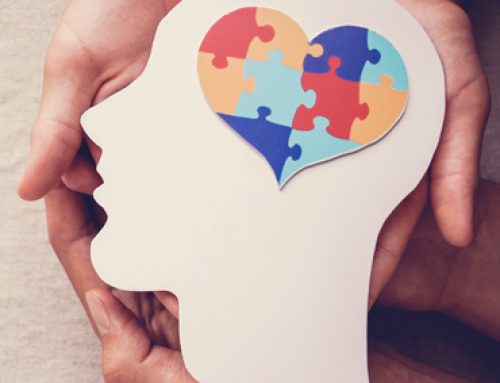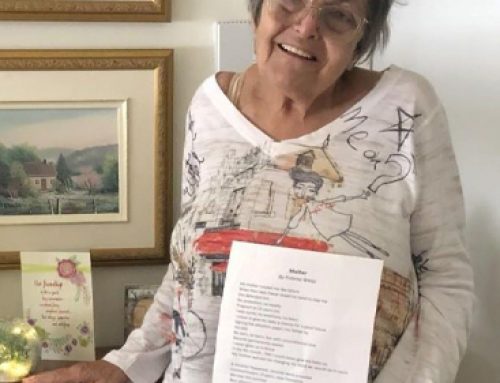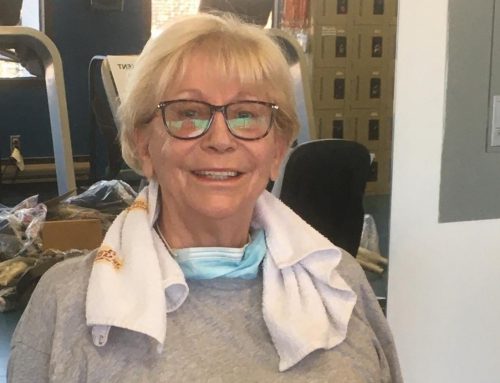June is Stroke Awareness Month in Canada, a time to spread awareness of the causes and effects of stroke as well as its treatment.

What is a stroke?
A stroke happens when blood stops flowing to any part of your brain, damaging brain cells. The effects of a stroke depend on the part of the brain that was damaged and the amount of damage done. Knowing how the brain works can help you understand more about strokes.
According to the Heart and Stroke Foundation, exercise after a stroke is a good way to maintain your health keeping you healthy – physically and mentally – to reduce the chance of another stroke and to improve your quality of life. Now with modern technology, even during the pandemic, this can be done from the comfort of your own home.
Keeping up with his exercise and voice work through technology
George Grantham, a retired professor and researcher, always led a very active life, but after a stroke in the summer of 2016, he faced some big changes. He recovered after his stroke but was left with a diagnosis of Aphasia and like many stroke survivors was looking for ways to improve his speech.
As part of his recovery process, George began taking classes at the Cummings Centre including such programs as Supported Conversation and Sing Me Your Story. Additionally, he began taking painting classes in the fine arts department, exploring new mediums and painting styles. George was attending weekly classes with regular exercise at the Centre when the pandemic occurred.
Since being asked to stay at home, George has been accessing some of the Cummings Centre’s online resources. He has explored lectures and exercise classes as part of the Virtual Learning Library, funded by the Leonard Albert Family Foundation. George is busy with Zoom conferences and keeps up on his voice work through YouTube videos provided by the Cummings Centre for participants of Sing Me Your Story.
George’s wife notes his enjoyment with the online classes offered through the Cummings Centre, participating throughout the week to maintain his vocal health and continue to strengthen his language skills.
To learn more about resources available for individuals post-stroke visit cummingscentre.org/health-and-wellness/stroke-resources or the Virtual Learning Library or contact Maria Fragapane, Wellness and Adapted Supervisor, Cummings Centre 514-734-1797.
Do you know the signs of a stroke? To know how to act F-A-S-T, click here!
The Cummings Centre’s mission is to empower and enhance the quality of life of adults age 50 and over by providing dynamic and innovative programs, social services, and volunteer opportunities in a vibrant, respectful, inclusive and compassionate environment. Building on its Jewish heritage, Cummings embraces people from all ethnic and socio-economic backgrounds.
As the hub of Montreal’s 50+ community, the Centre touches the lives of 10,000 people on an annual basis. In addition to its main campus at 5700 Westbury Avenue in Montreal, programs are offered at several off-site locations including the West Island, Cote Saint-Luc, St.Laurent, Westmount, Chomedey and Florida.
For more information, please contact us by phone at 514-343-3510, online at www.cummingscentre.org or in person at 5700 Westbury Avenue.






Leave A Comment
You must be logged in to post a comment.